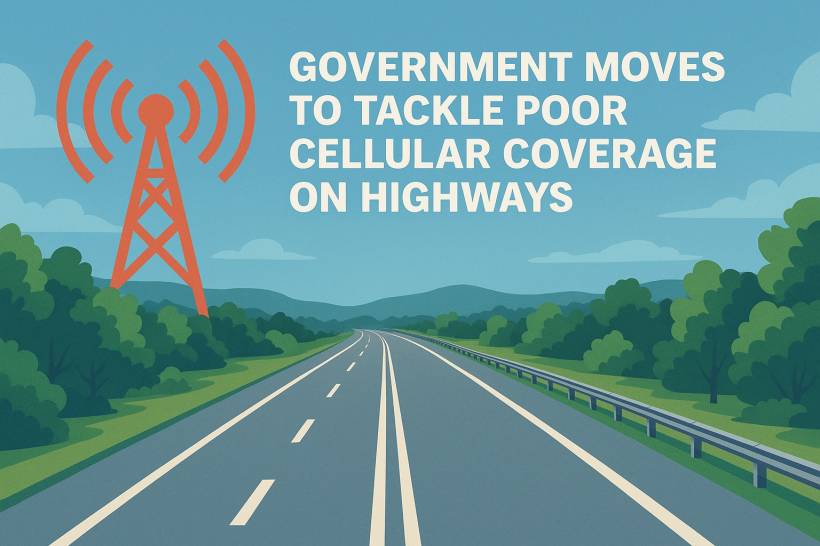If you've ever driven down a Malaysian highway and suddenly lost signal in the middle of a call or while streaming music, you're definitely not alone. It's a frustrating experience that's all too common — and the government is finally stepping in to do something about it.
Widespread Complaints Spark Government Response
The Ministry of Works, led by Datuk Alexander Nanta Linggi, has acknowledged growing frustration among road users regarding poor mobile connectivity along major highways. In a recent Facebook post, the Minister confirmed that the government has held a high-level meeting to discuss concrete steps toward improving both telecommunications and internet access on highways.
"Dropped calls, interrupted video streams — this is the reality for many Malaysians on the road," said Nanta. According to current assessments, nearly 50 kilometers of highway still suffer from little to no mobile network coverage. These areas include parts of the PLUS Expressway, the West Coast Expressway (WCE), and the East Coast Highway 2 (LPT2).
A Multi-Agency Plan Takes Shape
The meeting brought together several key players: Communications Minister Datuk Fahmi Fadzil, the Malaysian Communications and Multimedia Commission (MCMC), and the Malaysian Highway Authority (LLM). Together, they laid out a series of initiatives designed to fix the problem from multiple angles.
One of the major outcomes is the formation of an LLM-MCMC Special Task Force. This team will coordinate a strategic plan to tackle mobile blackspots. A top priority is identifying high-risk zones where calls frequently drop and then determining what telecom infrastructure is needed to fix the issue.
Engaging Highway Operators and Upgrading Infrastructure
Highway concessionaires won't be left out of the picture — they'll be working alongside authorities to explore both quick fixes and longer-term improvements. Regional LLM and State MCMC branches will also be carrying out site inspections at these blackspots, specifically to assess power supply capabilities and other infrastructure requirements.
Datuk Nanta also emphasized that the MCMC will play a hands-on role in diagnosing the root causes of these connectivity disruptions. Additionally, their technical expertise will be crucial in supporting the upcoming rollout of Malaysia's Multi-Lane Free Flow (MLFF) toll system, which will rely heavily on consistent internet coverage.
Connectivity Is a Right, Not a Privilege
In closing, Nanta made it clear that in today's digital era, reliable mobile and internet access shouldn't stop when you leave the city. "It's not just about building better highways," he said. "It's about making sure Malaysians stay connected — for safety, convenience, and peace of mind."
The government's move signals a broader commitment to digital infrastructure as a critical public service — and if all goes according to plan, the days of losing signal halfway down the expressway could soon be behind us.
